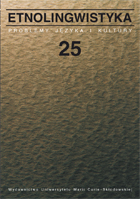Как меняются оценки ценностей (на примере рус. самолюбие)
How evaluation of values changes (with reference to rus. самолюбие)
Author(s): Elena L. BerezovichSubject(s): Language and Literature Studies, Applied Linguistics, Cognitive linguistics, Philology
Published by: Wydawnictwo Naukowe Uniwersytetu Marii Curie-Sklodowskiej
Keywords: values; language of advertising; traditional Russian culture; love of oneself
Summary/Abstract: With reference to the evaluative component in the meaning of the word самолюбие ‘self-esteem’, the author analyzes the development of axiological concepts in time, space and society. The article deals with the different interpretations of the meaning of this word in the literary language dictionaries of the 18th–21st centuries. There is a clear tendency towards improving of the perception of самолюбие from defining it as a vice (at the end of 18th century) to understanding it as a proper sense of one’s own dignity (at the end of 20th century). The article considers the changes in the word meaning in the opposing language layers – dialects and the language of advertising: while in dialects самолюбие is viewed entirely negatively, in the language of advertising it gets positive evaluation (a person with high self-esteem has a sense of his own value and is demanding in the pragmatic sphere of life).
Journal: Etnolingwistyka. Problemy Języka I Kultury
- Issue Year: 25/2013
- Issue No: 25
- Page Range: 181-199
- Page Count: 19
- Language: Russian

